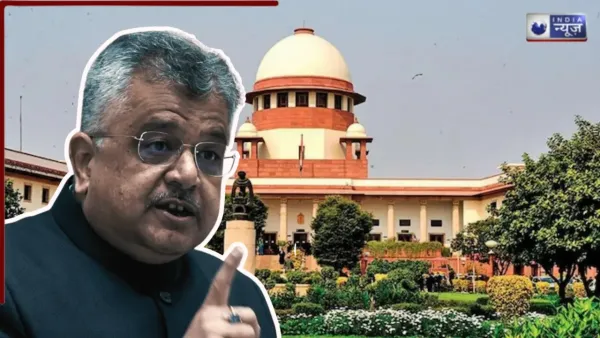
India News (India News), SC Hearing on Waqf Act: The second day hearing on the Waqf Amendment Act started on Wednesday in the Supreme Court. In this important hearing, Solicitor General Tushar Mehta kept the legal side firmly on behalf of the central government. The government told the court that there has been extensive discussion and counseling on changes in the Waqf Act. Tushar Mehta clarified that “petitioners do not represent the entire Muslim community.” He said that suggestions were received from more than 97 lakh people on this subject and meetings were held at many levels in which these amendments were discussed in detail.
The SG said that opinions were taken from 25 Waqf boards, many of which came personally and presented their views. Apart from this, state governments were also consulted. Tushar Mehta said that “Every section of the amendment was discussed in detail. Some suggestions were accepted, while nothing.” During the hearing, Justice BR Gavai questioned that his argument is that the government will decide its claim in this matter itself? To this, SG Mehta said, “It is true that the government cannot confirm its claim.
The initial bill said that the collector would decide. The objection was that the collector would be judges in his case. Therefore, the JPC suggested that anyone other than the collector should be made a nominated officer. ” He clarified that the Revenue Officer decides only for a record, not the final determination of the title.
SG Mehta said, “The government keeps land as a trustee of all citizens. Waqf is based on use – that is, the land is of someone else, but the user has used it for a long time. In such a situation it is essentially either private or government property. If a building is on government land, can the government not investigate whether the property is its or not?” The same provision has been made under Section 3 (C).
The government also said that there was a thorough discussion about this bill in the Joint Parliamentary Committee. Tushar Mehta assured the court that every point raised by the petitioners would be given a point -wise reply. The government’s attitude was clear that this amendment is not based on the opinion of some individuals, but the entire process has been completed after multilateral discussion.